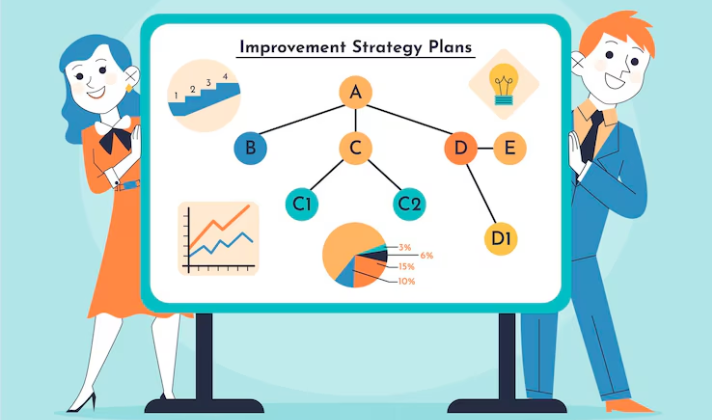Reasonably effective operations are the bedrock of any thriving Mini Mart. In a fast-moving environment like retail, particularly small convenience stores, no stone can be left unturned. Every aspect of doing business must be dealt with punctiliously on behalf of ensuring a company’s continued success. Organizational development (OD) practices provide an answer to the question of how can businesses reduce costs, optimize operations and help them get better overall performance. Here’s how Mini Marts can improve their operations by drawing upon appropriate OD strategies.
1. Evaluate and Optimize Workflow Processes
One of the initial steps in streamlining business operations is to evaluate existing corners of it. This includes mapping out each aspect of the store’s operations, from inventory management through up to customer service. Look for any bottlenecks that impede workflow–where efficiency is lost. For example, change how you stock goods onto store shelves if it takes too long to reach normal levels again once they’ve been depleted. By optimizing these processes, this in turn achieves aims such as faster service, shorter waiting times and ultimately a more satisfied clientele.
2. Using Technology To Streamline Operations
Technology is an effective means of streamlining operations. Installing Point Of Sale (POS) systems that are fully integrated with inventory management software can vastly cut down on manual tasks and errors. Such systems enable sales to be tracked automatically, stock levels updated as they decrease, and even predict when new orders must be placed. Also, using digital scheduling tools can help stores to arrange staff schedules more efficiently. This way, the company always has enough people on hand working without overstaffing itself. Through the intelligent use of technology, Mini Marts save time, lower their costs and concentrate more energy on serving clients.
3. Carry Out Ongoing Training Programs
Training is vital to organization development. Regular training programs guarantee that employees are at the forefront of the newest operational methods, technology and customer service techniques. This not only makes everything more efficient but also engenders in employees a feeling of competence and confidence. For example, teaching your employees the latest POS systems and how to effectively deal with customer complaints can make it possible for each day ‘s work to go more smoothly than before. Furthermore, customers in general get better service because of this. In addition to error reduction, continuous staff training helps to improve the overall quality of service. There are three main benefits to this: staff are instilled with a feeling of the company objectives, and such training encourages inemployees an ethos where they will not tolerate sub-standard work. This none-too-cheerful attitude is in fact often contagious among the lower ranks on up. At the same time it can help you maintain total management control of human resources.
4. Implement Lean Management
The object of lean management is to minimize all kinds of waste and add value in any way possible. This could mean in the case of a supermarket: minimizing overstock, turning glossy decorations into so much filth and getting rid of unproductive work. The store is then reorganized as necessary to achieve a good flow of people, with Lean management encouraging ongoing improvement even for minor details. For example, if popular products can be made more accessible by changing the lay-out of the store, this will shorten waiting times for customers and earn you more on sales.
5. Improve Communication
Effective communication is the key to smooth operations. To keep all staff on the same page you will want to establish clear communication channels. For example, this could mean regular meetings or daily briefings for employees just starting out in their careers. Another possibility is using electronic media like Wechat and QQ group chats to quickly coordinate issues and news updates. Good communication avoids misunderstandings, ensures that everyone understands their responsibilities and facilitates fast problem resolution during the operations phase.
6. Measuring and regularly Evaluating Performance
Being able to see the impacts of organizational development practices some six months later, it’s critical to evaluate performance on a regular basis. In using key performance indicators such as sales per employee, average transaction speed or inventory turnover, you can gauge how well the store is functioning. Checking these metrics at regular intervals lets you find areas for improvement and make decisions based on solid facts. Also, they are necessary if Mini Marts are to maintain operational efficiency but adapt to changes in the retail atmosphere.
Conclusion
Improvement is not something to be done once and for all with the operation of a Mini Mart. It is an ongoing process—who knows what matters today may be less important tomorrow based on changing conditions or how comfortable people previously found something. By evaluating and optimizing workflow, by means of technology, with continuous training so as to breed masters of lean management techniques and by reinforcing communication, combined alongside regular performance measurement itself Mini Marts are able to improve operational efficiency by quite a bit. These organizational development practices reduce costs and raise productivity, while simultaneously improving the shopping experience of your customers (which is vital for survival in today’s cut-throat retail market).
